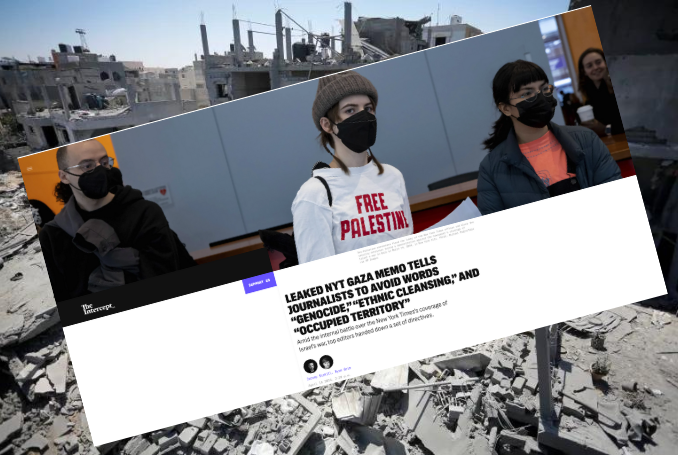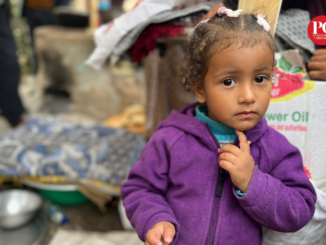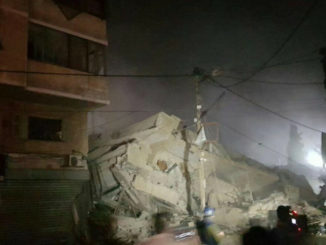
According to the news organization, the memo was first distributed in November and was regularly updated throughout the six-month-long genocidal war on Gaza.
The New York Times provided guidance to its journalists covering Israel’s war on the Gaza Strip, advising them to limit the use of terms like “genocide” and “ethnic cleansing”, as per an internal memo obtained by the American news organization The Intercept.
According to the report, journalists also had to avoid terms and phrases such as “occupied territory”, and “refugee camps”.
“The memo — written by Times standards editor Susan Wessling, international editor Philip Pan, and their deputies — ‘offers guidance about some terms and other issues we have grappled with since the start of the conflict in October9’,” The Intercept reported.
‘This Story is False’ – New Video Challenges New York Times’ Sexual Violence Investigative Report
According to the news organization, the memo was first distributed in November and was regularly updated throughout the six-month-long genocidal war on Gaza.
Charlie Stadlander, a Times spokesperson, was quoted as saying that “issuing guidance like this to ensure accuracy, consistency and nuance in how we cover the news is standard practice”.
However, according to the Intercept, these “issues over style guidance” led to internal rifts in the newsroom, for example “over issues with an investigative story on systematic sexual violence on October 7”. In that case, the leak “gave rise to a highly unusual internal probe.”
Several staffers accused the NYT of deferring “to Israel’s narrative on the events”, according to the Intercept.
A source in the NYT newsroom, who spoke on the condition of anonymity, was quoted as saying that although “it’s not unusual for news companies to set style guidelines, (…) there are unique standards applied to violence perpetrated by Israel.”
‘Hamas, Hamas, Hamas’: On Why the New York Times Stays Stuck in the Role of Grinch
‘Think Hard’
The memo produced and distributed by the NYT outlines a vast range of phrases and terms.
“The nature of the conflict has led to inflammatory language and incendiary accusations on all sides. We should be very cautious about using such language, even in quotations. Our goal is to provide clear, accurate information, and heated language can often obscure rather than clarify the fact,” the memo reads, according to the Intercept.
Journalists are encouraged to “think hard before using” words such as ‘slaughter,’ ‘massacre’ and ‘carnage’.
Although the memo frames these suggestions as a way to avoid emotional language, The Intercept highlighted the paper’s double standards.
Debunked by Palestine Chronicle – Co-author of of NYT Report on Sexual Assaults Exposed (VIDEO)
“Such language has been used repeatedly to describe attacks against Israelis by Palestinians and almost never in the case of Israel’s large-scale killing of Palestinians,” according to The Intercept.
While the memo encouraged journalists to use the words ‘terrorist’ and ‘terrorist’, it instructed them to “avoid ‘fighters’ when referring to the Oct. 7 attack”.
‘Incendiary Language’
The word ‘genocide’ is described in a specific section as “incendiary language,” with “a specific definition in international law”.
Therefore, journalists are instructed to use it “only in the context of those legal parameters.”
“We should also set a high bar for allowing others to use it as an accusation, whether in quotations or not, unless they are making a substantive argument based on the legal definition,” the memo added.
‘The Black Dress’ – Palestinian Documentary Challenges NYT Report on Oct. 7 Mass Rape (WATCH)
The term “ethnic cleansing” is described as “historically charged.” “If someone is making such an accusation, we should press for specifics or supply proper context.”
Journalists were also discouraged to use the term ‘Palestine’ “in datelines, routine text or headlines, except in very rare cases such as when the United Nations General Assembly elevated Palestine to a nonmember observer state, or references to historic Palestine.”
(The Palestine Chronicle)









Some time ago I searched the Net for the topic “journalist code ethics” and similar. I’ve got the AP News Values and Principles, amongst others. In the Global Charter of Ethics for Journalists, I find in #11. “The journalist shall refrain from acting as an auxiliary of the police or other security services.” By softpeddling Israeli atrocities in comparison to the Palestinian Resistances’ alleged atrocities, they’re acting as auxiliaries to the IDF. Which in turn breaches the #10. “The journalist shall consider professional misconduct to be: distortion of facts; slander, libel, defamation, unfounded accusations.”